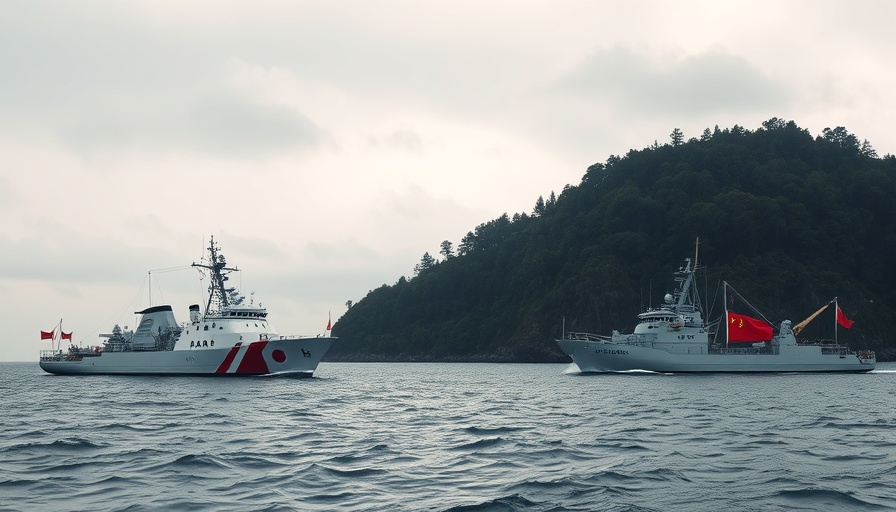
China's Tactical Maneuvers Over Diaoyu Islands
The Diaoyu Islands, known as the Senkaku Islands in Japan, have long been a source of contention between China and Japan. Former Japan Self-Defense Forces Chief, Katsutoshi Kawano, has recently raised alarms regarding China's intensified military posture and its implications for the future of these disputed territories. Highlighting an "absorption" strategy that could lead to overt territorial claims, Kawano's remarks reflect growing concerns among Japanese military experts and political analysts.
A History of Tension and National Identity
This tension is rooted deeply in historical grievances; both Japan and China assert sovereignty over the islands, tying them not only to national pride but also to resources in the surrounding waters. The islands occupy a unique place in the geopolitics of East Asia where nationalism plays a critical role. For China, controlling these islands could reinforce its maritime claims and enhance its regional influence.
Implications for Regional Security and Foreign Policy
As China enhances its naval capabilities and asserts its claims, Japan finds itself at a crossroads. The potential implications of this 'absorption plan' extend beyond simple territorial disputes and delve into the realms of foreign policy, military strategy, and international alliances. With experts like Kawano warning of potential aggression, Japan is compelled to reassess its security strategies, possibly seeking closer cooperation with the United States and other allies to counteract China’s assertiveness. The importance of this matter for Japan resonates within a broader understanding of the Asian security landscape, where rising tensions could lead to military posturing and increased defense budgets.
Exploring the Global Landscape and the West's Role
The question of how the United States, NATO, and other Western nations respond to these tensions is increasingly relevant. The global community's response, including possible sanctions or military exercises, could significantly influence China’s approach and its objectives in the region. Should the West, particularly the U.S. under the Biden administration, engage more assertively with allies in Asia, this could either deter Chinese ambitions or lead to an escalation of tensions. As evident from past geopolitical analyses, economic leverage and military alliances remain pivotal tools in shaping outcomes.
The Intersection of Domestic Policies and International Relations
Domestically, these foreign policy challenges can create significant divides within a country's political landscape. In the U.S., for instance, issues like immigration reform, healthcare policies, and economic recovery plans from post-COVID-19 realities often overshadow discussions on military strategies and international alliances. Yet, it is imperative for the public and policymakers alike to recognize that decisions made in Congress regarding foreign policy not only impact U.S. interests but also dictate how allies like Japan navigate their own security dilemmas against the backdrop of growing Chinese assertiveness.
Actionable Insights: What This Means for Japan and Beyond
For leaders in Tokyo and Washington, the challenges posed by China’s ambitions over the Diaoyu Islands necessitate a reevaluation of strategy. It's a call to not just bolster military preparedness but also to foster bipartisan dialogues that involve diverse perspectives on national security. A unified front that blends diplomatic efforts with robust military readiness could serve as a stabilizing force in the unpredictable waters of East Asia.
Conclusion: A Call for Vigilance
The shifting landscape surrounding the Diaoyu Islands exemplifies more than just a territorial dispute; it encapsulates the complexities of international relations where national sovereignty, military strength, and diplomatic relations intertwine. For professionals watching these developments, it's clear that understanding these dynamics is essential not only for grasping the nuances of East Asian geopolitics but also for anticipating how these tensions might influence global security in the years to come.
 Add Row
Add Row  Add
Add 




Write A Comment